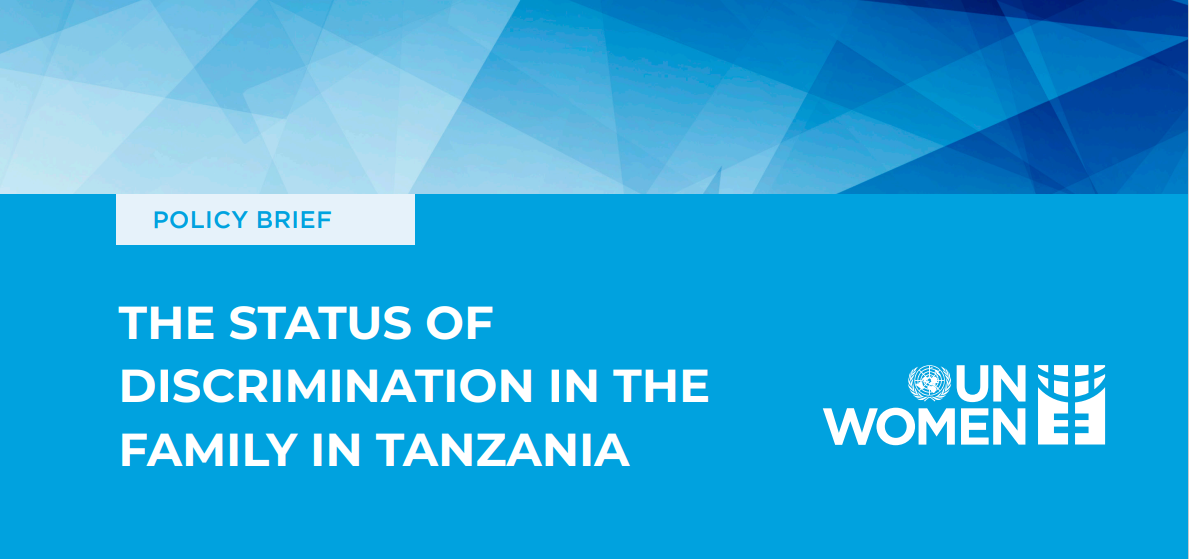
Policy Brief - The Status of Discrimination in the Family in Tanzania

This brief relies on data and findings from the Social Institutions and Gender Index (SIGI) report for Tanzania conducted in 2022, complemented by online literature. To empower women in other important areas, gender equality in the home and private spheres is essential. Nonetheless, discriminatory social norms and traditional roles are frequently the strongest and hardest to overcome within the home and family. There are two primary sections in this policy brief. Each part focuses on one of the two primary forms of discrimination against women and girls in the home: unequal distribution of unpaid care, domestic work, and decision-making authority, as well as female child marriage. The analysis provides the current status of women in Tanzania and the 31 regions that comprise the country for each component. The study then reveals how discriminatory social institutions contribute to Tanzania’s unequal outcomes, especially social norms, attitudes, and stereotypes. These include the high percentage of women who marry before turning 18, their disproportionate share of unpaid care and household work, and their limited ability to make decisions for themselves and their families. Lastly, each section reveals a few key factors contributing to the discriminatory social norms and attitudes limiting Tanzanian women’s opportunities.